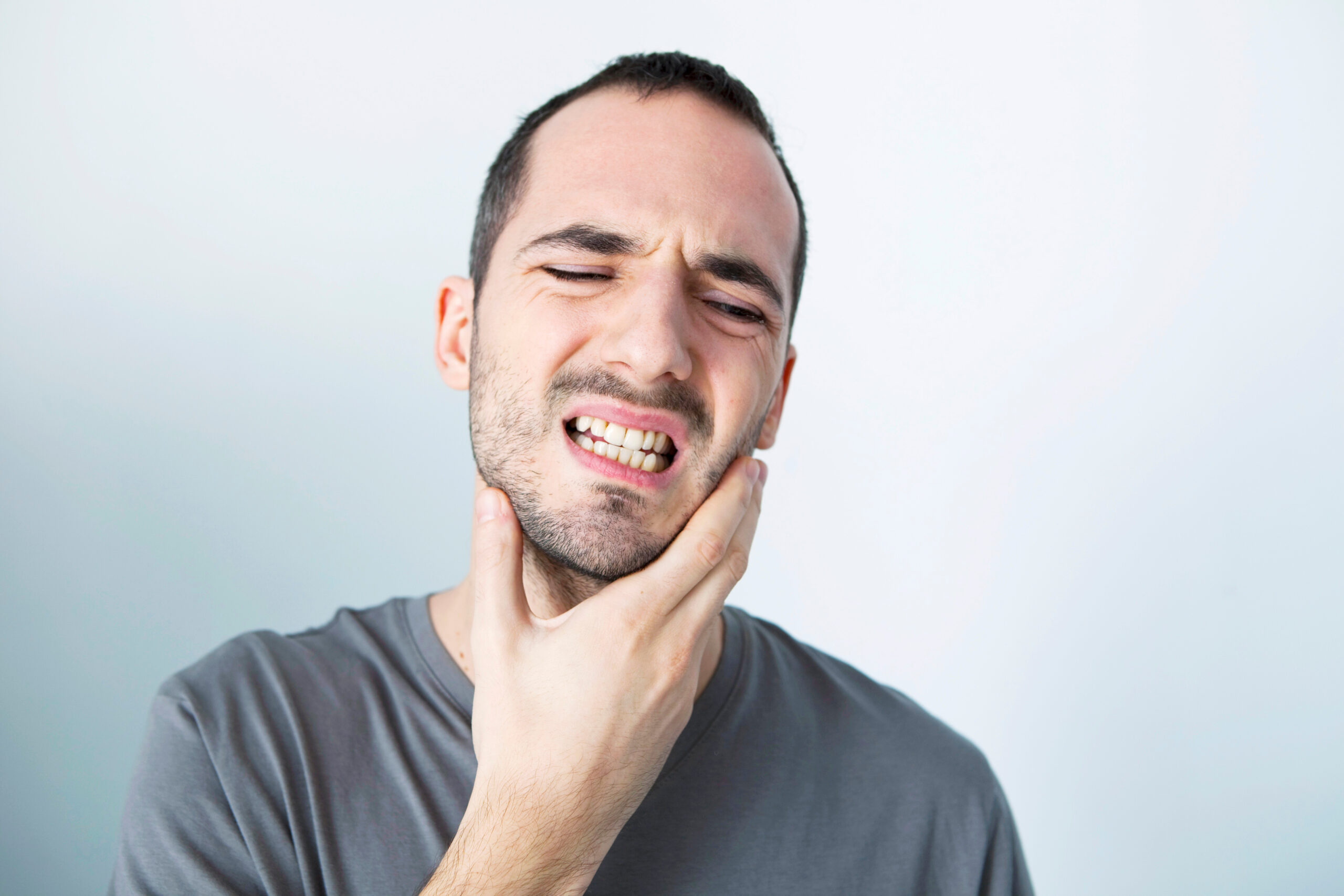If you’re experiencing tooth pain, various factors may be contributing to this issue. Should your pain persist or grow worse, it’s important to visit a dentist and have them examine your smile.
Common reasons for toothaches include cavities, gum sensitivity, and wisdom tooth impaction. Wisdom teeth, in particular, may need to be removed in order to get your smile back to functioning properly and to alleviate any discomfort.
Listed below are five common reasons your teeth may be causing you pain. If you have further questions or are unsure if you require care, always reach out to a dentist near you.
Cavities
Have you ever felt a sharp pain in your tooth when you bite into something sweet or cold? That could be a cavity. Cavities are like small hollows in your teeth, created by excess bacteria. This bacteria produces acids that can erode the enamel (the protective coating on the surface of your teeth), leading to cavities.
How Do Cavities Cause Pain?
Cavities can expose the sensitive inner layers of your teeth, such as the dentin and pulp. This renders your teeth more sensitive to temperature changes and certain foods. If left untreated, cavities can worsen, leading to more severe pain and potential infection.
What Can You Do About It?
Regular dental check-ups are crucial to detect cavities early. If you suspect a cavity, schedule an appointment with your dentist. Treatment usually involves filling the cavity to restore the tooth’s integrity and prevent further decay.
Gum Disease
Gum disease, also known as periodontal disease, can cause tooth pain if it progresses to an advanced stage. It begins with gingivitis, characterized by red, swollen gums that may bleed when you brush or floss.
How Does Gum Disease Cause Pain?
As gum disease progresses, it can lead to periodontitis, where the gums pull away from the teeth, forming pockets that become infected. If not addressed promptly, this infection can damage the bone supporting your teeth, causing pain and even tooth loss.
What Can You Do About It?
Good oral hygiene is your best defence against gum disease. Brushing twice a day, flossing daily, and regular dental cleanings can help prevent and manage gum disease. If you notice symptoms, visit your dentist for a thorough examination and appropriate treatment.
Tooth Sensitivity
Do you feel pain when enjoying an ice cream cone or sipping on hot coffee? Tooth sensitivity could be the reason. This problem also arises when the enamel wears down or the gums recede.
How Does Tooth Sensitivity Cause Pain?
The dentin contains tiny tubules that connect to the tooth’s nerve center. When exposed, these tubules can transmit temperature changes and acidic or sugary stimuli directly to the nerve, causing sharp, sudden pain.
What Can You Do About It?
Switch to a toothpaste designed for sensitive teeth, which can help block the transmission of pain signals. Avoid overly acidic foods and drinks, and use a soft-bristled toothbrush to prevent further enamel erosion. Consult your dentist for additional treatments if the pain persists.
Tooth Abscess
A tooth abscess is a pocket filled with pus due to a bacterial infection. It’s serious and needs prompt attention. The pain is usually intense, throbbing, and can spread to the jaw, neck, or ear.
How Does a Tooth Abscess Cause Pain?
The infection within the tooth or gum creates pressure and inflammation, leading to intense pain. Other symptoms may include swelling, fever, and a bad taste in your mouth from the pus.
What Can You Do About It?
If you suspect a tooth abscess, seek emergency dental care. Severe tooth pain requires prompt dental care for effective relief. Treatment may involve draining the abscess, using antibiotics to clear the infection, and using procedures like root canal therapy or tooth extraction to remove the source of the infection.
Teeth Grinding
Do you wake up with a sore jaw or a dull headache? It could be due to teeth grinding at night, a condition called bruxism. This habit can gradually wear down your teeth and lead to discomfort.
How Does Teeth Grinding Cause Pain?
The constant pressure and friction from grinding can damage the enamel, leading to tooth sensitivity and pain. It can also strain the jaw muscles and joints, contributing to discomfort.
What Can You Do About It?
Your dentist can fit you with a custom mouthguard to protect your teeth while you sleep. Stress management techniques and avoiding caffeine and alcohol before bedtime can also help reduce grinding.
Taking the Next Steps
Taking action is crucial when it comes to tooth pain. Identifying the cause is key for effective treatment and relief. Whether it’s a cavity, gum disease, tooth sensitivity, an abscess, or teeth grinding, your dentist is your best partner in diagnosing and treating the problem.
When to See Your Dentist
If you’re experiencing wisdom tooth pain or any other type of discomfort, it’s essential to consult a Whyte Ave dentist promptly, especially if the pain grows more severe or spreads to another area in your mouth.
- Swelling or signs of infection
- Pain that interferes with daily activities
- Sensitivity that doesn’t improve with home care
We Can Help You Maintain Your Oral Health
Regular dental visits, good oral hygiene, and a healthy diet are essential for preventing tooth pain and maintaining a bright, healthy smile. Remember, Lumos Dental is here to help you keep your teeth and gums in good condition.
Schedule an appointment with our dentist on Whyte Ave today and take the first step toward a pain-free mouth. Your smile deserves the best care.

Dr. Taka Shah graduated from the University of Alberta Dentistry program in 2011 and is the owner of Lumos Dental in Edmonton, Alberta. He is passionate about lifelong learning and has pursued extensive postgraduate training to enhance his skills and knowledge. His clinical expertise includes sedation dentistry and advanced Invisalign techniques, supported by his active membership in the American Academy of Clear Aligners. Dr. Shah is dedicated to providing high-quality dental care and helping his patients achieve healthy, confident smiles.

 (780) 433-0222
(780) 433-0222 